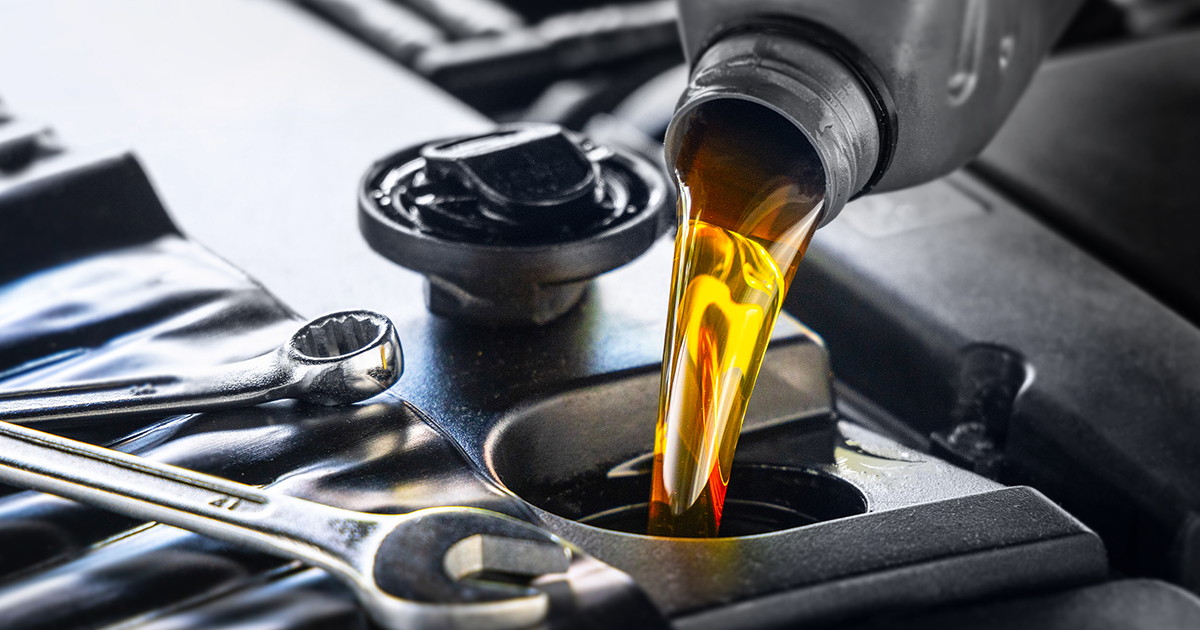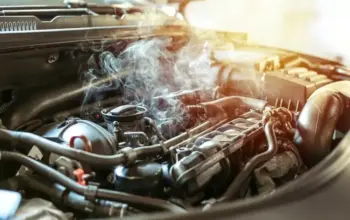Uzone.id – For those of you who have just finished a long trip, use it car, it’s a good idea to replace it immediately engine oil.
When traveling long distances, the energy machine is drained so that it can carry all family members through a path full of challenges. Plus, hot weather and dust increase the risk of engine damage.
In this condition, engine oil works hard to maintain engine health. Oil dissolves dirt in the engine room to be filtered by the oil filter.
Dirt comes from dust that enters through leaky seal gaps, carried by air sucked into the combustion chamber, as well as fine metal debris due to friction between engine components.
The next task is to help reduce engine temperature due to friction between engine components by transmitting heat to the engine block walls and then absorbing it by the radiator fluid.
Consequences of Not Changing Engine Oil After a Long Trip
Engine oil is designed to withstand high temperatures, some even have boiling points reaching 200° C.
However, oil does not have a special cooling system so it is difficult to release excess heat on congested roads, plus in very hot weather on long journeys.
As a result, after facing tough conditions on a long journey, the chemical structure of the engine oil will change and its ability will decrease.
Because it cannot work optimally in protecting engine components, friction will increase and leave a lot of metal residue.
If left unchecked, dirt will hinder engine performance and damage its components due to failure to carry out the main function of oil. Excessive residue will clog the filter and oil pump, and even clog if it gets too bad.
Other oil functions such as helping to release engine heat are also reduced and make the radiator work harder. Oil temperature that is too hot will make it thinner and risk entering the combustion chamber through the piston ring gap.
This condition is often called evaporating oil and risks causing deposits in the combustion chamber. Don’t forget, that good engine oil will maintain engine performance. So, the performance is always optimal and saves petrol because it is efficient.
Apart from that, emissions can also be reduced because combustion takes place well and there are very few carbon deposits. This benefit will decrease if the quality of the oil decreases.
Even though the engine is in top condition, the risk of oil evaporating remains. Oil will evaporate because, at a certain temperature limit, the internal energy that binds the hydrocarbon molecules can no longer hold itself due to excessive heat energy.
If all of the negative effects above are ignored, it will result in the machine breaking down so you have to take the machine down.
The key to this problem is regular service, where one of the service items is checking the condition of the oil and also changing the engine oil according to Toyota engine specifications.
“With all our ability to maintain engine performance, we are obliged to check the condition of the oil after long trips,” explained Nur Imansyah Tara, Marketing Division Head of Auto2000, in his official statement.

5 Tips for Choosing Car Oil
Car oil is an important component in maintaining optimal performance and the long life of your car engine. However, with various brands and types of oil available in the market, choosing the oil that suits your vehicle’s needs can be a confusing task. To help you choose the right car oil, here are five tips you need to consider. Here’s the full review:
1. Conform to the Manufacturer’s Instructions
It is important to always follow the instructions provided by your car manufacturer. These instructions are usually found in the vehicle’s owner’s manual or user manual. Car manufacturers have conducted intensive testing and research to determine the type of oil and viscosity that is most suitable for their vehicle engines. Using oil according to the manufacturer’s recommendations will help ensure optimal lubrication and good performance of your car’s engine.
2. Pay attention to the oil viscosity
Oil viscosity refers to the oil’s ability to flow. The viscosity number is usually listed on the oil bottle label and is indicated by a code such as 10W-40 or 5W-30. The first number shows the viscosity of the oil at cold temperatures, while the second number shows the viscosity at hot temperatures.
Choosing the right viscosity is important to ensure the oil can provide optimal lubrication to your car’s engine in various temperature conditions. Make sure you understand the viscosity recommendations given by your car manufacturer and choose oil with the appropriate viscosity.
3. Consider the type of oil
There are several types of car oil available on the market, including mineral oil, semi-synthetic oil, and synthetic oil. Mineral oil is produced from natural base ingredients, while semi-synthetic oil is a mixture of mineral oil and synthetic oil.
Synthetic oil, on the other hand, is chemically processed and usually performs better in terms of lubrication and engine protection. When choosing the type of oil, consider the needs of your car’s engine, the environment in which you drive, and your budget. Synthetic oil may have a higher price, but it can provide better protection to your engine.
4. Pay attention to oil specifications and standards
Apart from paying attention to the brand, type, and viscosity of the oil, it is also important to check the oil specifications and standards listed on the oil bottle label. Oil specifications refer to the technical requirements that oil must meet to maintain good engine performance and protection.
Oil standards, on the other hand, refer to a classification system used to categorize oils based on their characteristics and performance.
Oil manufacturers generally include information regarding oil specifications that are suitable for certain car engines. For example, stated specifications may include special requirements regarding viscosity, resistance to high temperatures, cleaning ability, and protection against wear.
5. Consult an expert or mechanic
If you still feel confused or unsure about choosing the right car oil, there’s no harm in consulting an expert or experienced mechanic. They have extensive knowledge and experience when it comes to selecting car oil.
A trusted mechanic will provide appropriate advice and recommendations based on the type and condition of your car’s engine. They can also help understand the manufacturer’s instructions and applicable oil standards. So, you don’t need to hesitate to ask about the recommended oil specifications for your vehicle so you can make the right decision.
















